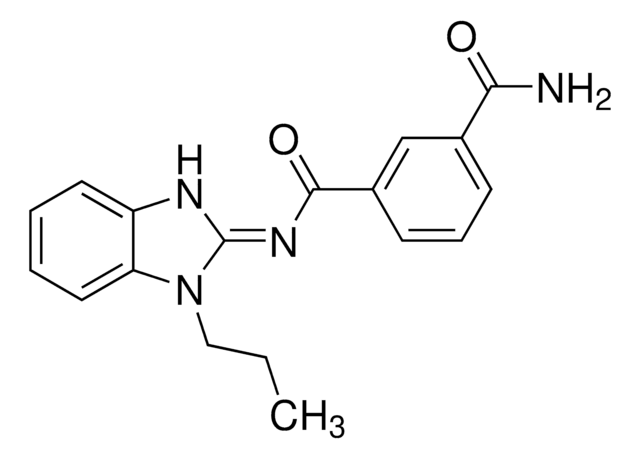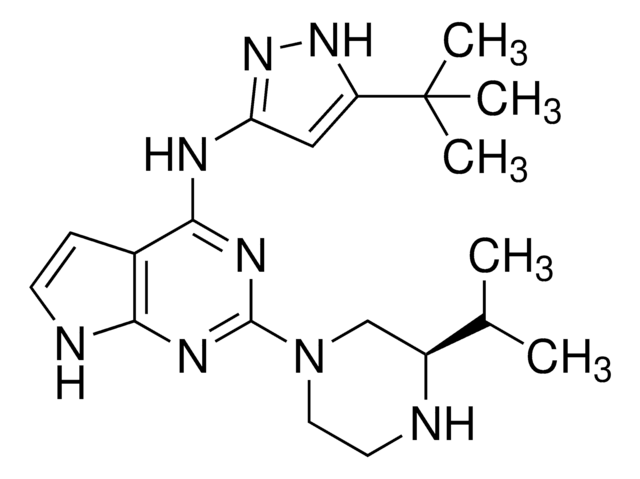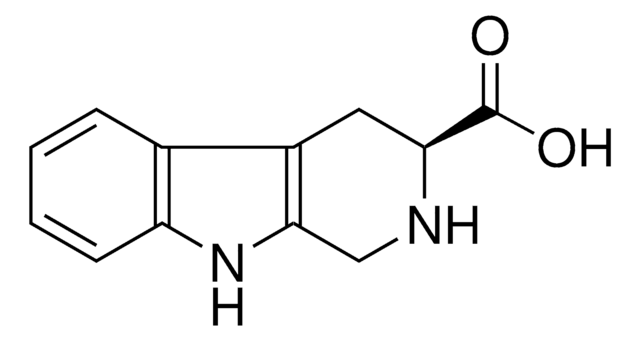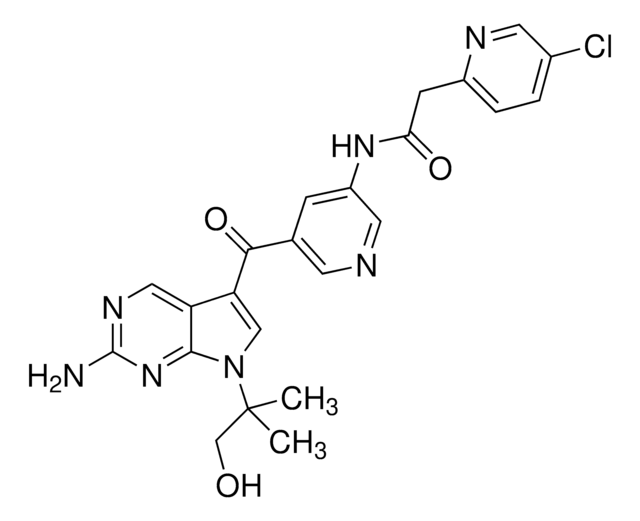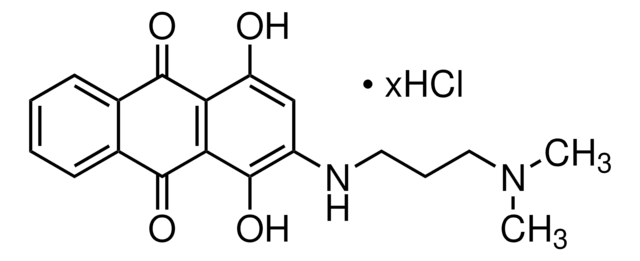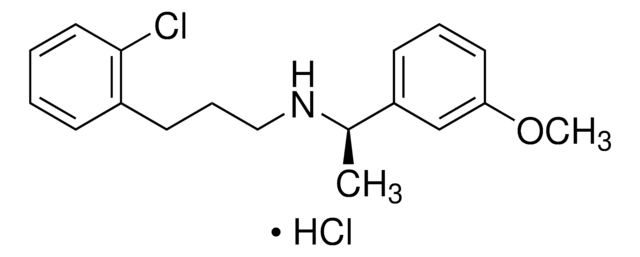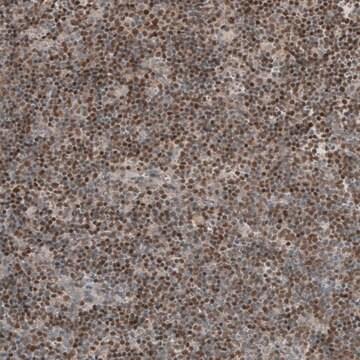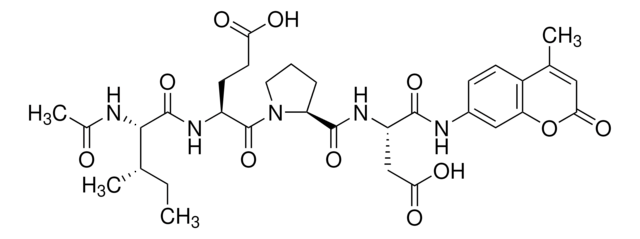SML2399
ML327
≥98% (HPLC)
Synonym(s):
1,2-Dihydro-2-oxo-N-[3-[[(5-phenyl-3-isoxazolyl)carbonyl]amino]propyl]-3-pyridinecarboxamide, CID 60167648
Sign Into View Organizational & Contract Pricing
All Photos(1)
About This Item
Empirical Formula (Hill Notation):
C19H18N4O4
CAS Number:
Molecular Weight:
366.37
MDL number:
UNSPSC Code:
12352200
NACRES:
NA.77
Recommended Products
Assay
≥98% (HPLC)
form
powder
color
white to beige
solubility
DMSO: 2 mg/mL, clear
storage temp.
2-8°C
Biochem/physiol Actions
ML327 is a regulator of E-cadherin transcription that restores E-cadherin expression in cancer cell lines and partially reverses Epithelial-to-Mesenchymal Transition (EMT). It is a potent inducer of mesenchymal-to-epithelial transition (MET) in epithelial cancers. Apparently ML327 blocks MYC expression in neuroblastomas. It induces apoptosis in cancer cells and sensitizes Ewing sarcoma cells to TRAIL.
Storage Class Code
11 - Combustible Solids
WGK
WGK 3
Flash Point(F)
Not applicable
Flash Point(C)
Not applicable
Certificates of Analysis (COA)
Search for Certificates of Analysis (COA) by entering the products Lot/Batch Number. Lot and Batch Numbers can be found on a product’s label following the words ‘Lot’ or ‘Batch’.
Already Own This Product?
Find documentation for the products that you have recently purchased in the Document Library.
ML327 induces apoptosis and sensitizes Ewing sarcoma cells to TNF-related apoptosis-inducing ligand.
Eric J Rellinger et al.
Biochemical and biophysical research communications, 491(2), 463-468 (2017-07-19)
Ewing sarcomas are rare mesenchymal-derived bone and soft tissue tumors in children. Afflicted children with distant metastases have poor survival despite aggressive therapeutics. Epithelial-to-mesenchymal transition in epithelial carcinomas is associated with loss of E-cadherin and resistance to apoptosis. ML327 is
Hanbing An et al.
Oncotarget, 6(26), 22934-22948 (2015-06-18)
Transcriptional repression of E-cadherin is a hallmark of Epithelial-to-Mesenchymal Transition (EMT) and is associated with cancer cell invasion and metastasis. Understanding the mechanisms underlying E-cadherin repression during EMT may provide insights into the development of novel targeted therapeutics for cancer.
Chandrasekhar Padmanabhan et al.
Oncotarget, 8(60), 101072-101086 (2017-12-20)
Epithelial cancers (carcinomas) comprise the top four causes of cancer-related deaths in the United States. While overall survival has been steadily improving, therapy-resistant disease continues to present a major therapeutic challenge. Carcinomas often exploit the normal developmental program, epithelial-to-mesenchymal transition
Our team of scientists has experience in all areas of research including Life Science, Material Science, Chemical Synthesis, Chromatography, Analytical and many others.
Contact Technical Service